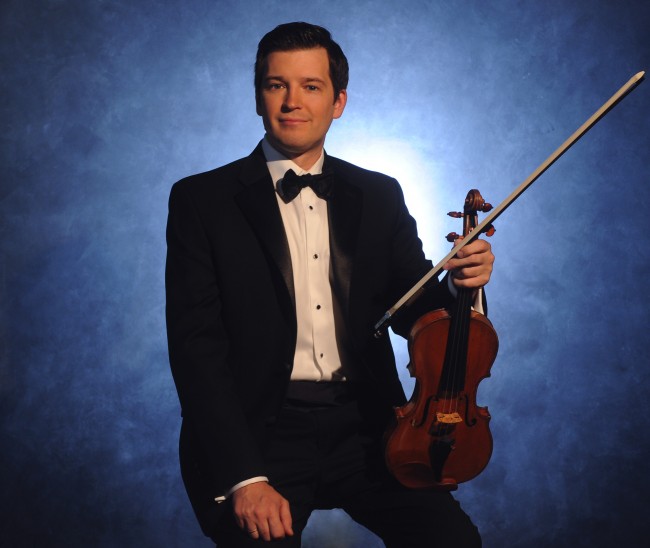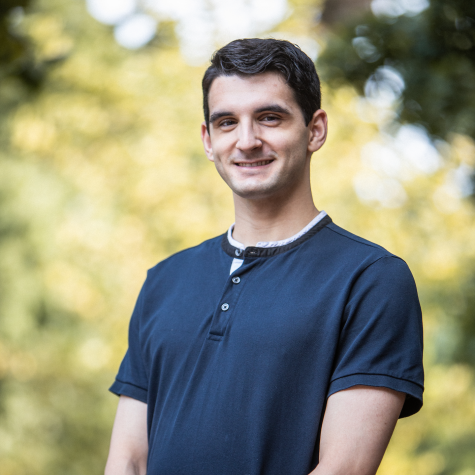Amongst Blair’s ingenious and experienced faculty is Stephen Miahky, esteemed violin professor and first violinist of the Blair String Quartet. From Princeton’s Chamber Music Society to Vancouver’s Sonic Boom Festival, Miahky has seen the face of endless performance venues. He’s played alongside various well-known soloists and instrumentalists in the Berlin Philharmonic and Royal Concertgebouw Orchestra. With plentiful prestigious awards for outstanding musical achievement, Miahky plays an integral part in Vanderbilt’s development, both as a university and a hot spot for musical culture. Here’s what Miahky had to say about his experience getting involved in music, and his goals for revolutionizing the industry today.
Vanderbilt Hustler: What drew you towards the violin? Why have you centralized your career around playing and teaching music?
Steven Miahky: I came from a musical household, so inspiration was always around me. My mother studied vocal performance at Boston University and went into choral music education, teaching at various public schools. My father was not formally trained in music but was an excellent singer and my older brother is a cellist. I started getting involved with the violin when I was around 6, and at that age, I think it’s natural to want to imitate your siblings but not do the exact same things. I was inspired to play largely because of him, though I don’t think my parents expected there to be two musicians in our family.
As far as why playing violin became my career, I just couldn’t imagine myself doing anything else. I think that has to be fundamental to pursuing music; it’s just a requirement. Music is a life-long journey and it must sustain you your whole life.
VH: What do you enjoy about playing both roles of performer and teacher? How does that dual component impact your own studies, and do you favor either position?
SM: The ability to work as a professor and a performer was definitely an attractive component in me coming to Vanderbilt. For me, I have always loved playing chamber music and string quartets in particular, so the prospect of being in a quartet was a wonderful aspect of this job. I don’t favor any aspect however. Performing and teaching really go hand in hand. As performers we are constantly trying to push ourselves to be better for learning new things about how to play more efficiently. Those discoveries are really valuable and can be shared with my students, thus there is a natural balance that can exist between those two realms, and I think my colleagues in similar positions would feel the same way.
VH: Taking into consideration how each college within Vanderbilt contains its own cultures, what ideas do you have for integrating Blair more effectively into the rest of the school community?
SM: What makes Blair unique is that we are the only undergraduate school on campus. That alone makes for a different experience, and the students learn a lot of leadership qualities not just because you have to play well, but also because there are not graduate students around. Blair students are always put into positions of leadership, and I think that really strengthens our student body.
I also think Blair suffers from natural isolation just due to where we are on campus. Students and faculty both feel that, but we are trying to make ourselves better known by playing in different venues. I know students have taken upon themselves to have little music series at Commons and Kissam, so wanting to be a daily part of what happens at Vanderbilt is definitely on our minds.
Hopefully we can encourage some people to check out our concerts. I think some people would be shocked to learn that the number of concerts we give at Blair is in the high hundreds. The geographical concerns are an issue, but we are trying to combat that. At the very least, we definitely are looking to maximize our social media presence both here on campus and in Nashville.
VH: Do you have any goals or expectations on the influence of classical music on the development of country-dominant Nashville’s overall music culture?
SM: I think there’s no question that Nashville’s music scene and classical music scene is growing all the time. We consider ourselves to be the center of that, but there are so many groups that are out there now like Intersection, Chatterbird, and Alias. I don’t think these are groups that would have been viable 10 or 15 years ago. As Nashville continues to become more vibrant, I think there are people that are willing to come hear all types of music.
Some goals for myself with music, however, are getting as much people as possible to come to our concerts. Last year I brought my students to play at the Frist Art Museum and W.O. Smith Music School to make ourselves more noticed. We want people to come to Blair as this is our home base, but we also want to be good ambassadors for the Nashville area. Music is portable, and outreach is very important to us.
VH: What would you suggest to non Blair students to broaden their appreciation for classical music and take advantage of all the opportunities available?
SM: I think they might be surprised at the breadth of what happens here. They should know that we have jazz, drumming and even all of the American folk instruments like mandolins and banjos. While we are about classical music, we are also about the music of Nashville and music in general. We appropriately reflect a variety of styles and a variety of interests in our faculty and students. Students should definitely keep checking the websites because they never know what they might stumble across.
Responses have been edited for clarity and length.



